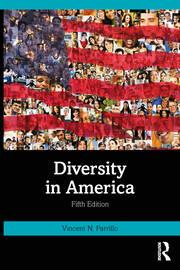Is comedy just a good chuckle or a powerful tool for change? Picture this: you’re at a comedy show, laughter bubbling up like a fizzy soda, and then suddenly, the comedian drops a joke that hits a little too close to home. It’s funny, sure, but there’s an edge to it—a nudge that makes you think, feel, and even squirm in your seat. So, should comedy push the envelope, tackling serious topics like racism, or is it better left to just be a light-hearted escape from life’s messiness? In this article, we’re diving into that delightful gray area where humor meets societal challenges. Let’s explore whether laughter can be a platform for change or if it’s simply meant to be our ticket to a world where we leave our troubles at the door.
Exploring the Fine Line: When Punchlines Pack a Punch Against Prejudice

Diving into the world of humor, we find ourselves navigating a tricky landscape where the line between hilarity and insensitivity can be razor-thin. Comedy has this magical power to highlight absurdities and expose truths, but when it crosses into the territory of bigotry, the laughter can quickly turn sour. Comedians often wield punchlines like swords, capable of cutting through ignorance or, conversely, deepening stereotypes. For instance, when a comedian tackles themes of race, the intent matters just as much as the punchline. Are they aiming to bring people together and provoke thought, or are they simply throwing out zingers for shock value? The difference is often as stark as day and night, and that’s where the debate gets juicy.
While some argue that comedy should be a safe haven where we can laugh at anything, others insist that a good joke should uplift and challenge harmful norms. Consider this a double-edged sword: on one hand, humor can shine a light on our biases, encouraging reflection and growth. On the other hand, it risks becoming a vehicle for furthering animosity if it mistakenly normalizes prejudice. Think about it like this: a well-crafted joke about race can either spark meaningful conversations or reinforce the very stereotypes it seems to mock. Drawing that fine line requires not just sharp wit but also a keen sense of responsibility among comedians. What do you think? Is it time for humor to be our mirror, reflecting the uncomfortable truths we often shy away from? Or should it remain an escape, keeping the focus on laughter instead of critique?
The Power of Laughter: Can Comedy Serve as a Catalyst for Change?

Laughter, oh sweet laughter! It has this incredible knack for breaking down barriers, doesn’t it? Comedy can serve as more than just a means to tickle your funny bone; it has the potential to stir the pot and challenge societal norms. Think about it—if a comedian weaves a joke about a taboo subject, like racism, it can expose the absurdity of prejudice and get us thinking in a different light. When a laugh erupts, it often creates a moment of vulnerability where people can reflect on their beliefs. It’s like shining a spotlight on the dark corners of our minds, making us question why we even harbored those thoughts in the first place. Sometimes, comedy is that little voice that says, “Hey, look at this ridiculousness!”
Now, let’s not undermine the sheer joy comedy brings, either. After all, everyone enjoys a good chuckle. Comedy can unite people—it’s a language all its own, transcending differences and pulling us together. But when laughs turn into uncomfortable giggles at the expense of others, do we just sit back and enjoy the show? Or do we take the plunge and tackle those uncomfortable truths? It might feel risky, like walking a tightrope without a safety net. Yet, it’s often in those riskiest moments that we find the most profound insights. Can comedy serve dual purposes—leaving us in stitches while also making us reassess our perspectives? It’s a tightrope worth walking, don’t you think?
Crafting Comedy with Care: Strategies for Tackling Tough Topics

Comedy can be a tightrope walk, especially when you’re trying to address sensitive issues like racism. It’s essential to strike a balance between humor and the seriousness of the topic at hand. Here are some strategies to keep in mind:
- Know Your Audience: Tailor your material to the sensitivities and experiences of your audience. What might be hilarious to one group could be offensive to another.
- Avoid Punching Down: Make sure your jokes do not target marginalized communities. Instead, aim to punch up and challenge those in power.
- Self-Reflection: Before you take the stage, examine your own biases and attitudes. A genuine perspective can lead to more meaningful humor.
Using comedy to highlight racism isn’t just about making people laugh; it’s about sparking dialogue. You can weave in storytelling that adds depth to your jokes. For example, consider how comedic anecdotes can disarm tension while illuminating complex truths. Check out the following table for an overview of effective elements:
| Element | Description |
|---|---|
| Personal Experience | Relating comedy to your own life creates a relatable context that resonates with audiences. |
| Satire | Pointing out absurdities in societal norms can challenge racist attitudes while keeping it light. |
| Inclusivity | Using diverse perspectives makes your comedy more vibrant and relatable, rather than exclusive. |
Finding Common Ground: How Humor Can Bridge Cultural Divides

Humor often serves as a universal language, transcending borders and cultures in ways that formal communication sometimes can’t. Think about it: when you share a laugh, it breaks down walls. Picture sitting around a table with friends from diverse backgrounds, and when a witty joke lands just right, suddenly, you’re all united in joy. It’s like finding a cozy little nook in a vast library, where laughter becomes the binding agent that can transform misunderstandings into shared experiences.
However, navigating the thin line between humor and insensitivity can be tricky. Comedians often walk a tightrope, balancing the desire to entertain with the responsibility to challenge societal norms. They can draw attention to issues like racism without alienating audiences. Humor can shine a light on uncomfortable truths, making them easier to digest. Consider these points:
- Relatable Experiences: Sharing personal stories that resonate with many can foster connection.
- Subverting Expectations: Jokes that turn stereotypes on their heads can provoke thought while still being funny.
- Cultural Exchange: Humor rooted in different cultures can educate and entertain simultaneously.
In Retrospect
As we wrap up this laughter-fueled journey, it’s clear that comedy isn’t just about tickling our funny bones; it’s a powerful lens through which we can examine the world, including the tricky terrain of racism. Sure, we all love a good laugh over a well-timed joke, but sometimes those laughs can prompt us to think a little deeper, can’t they? It’s like the punchline of a great story that unexpectedly leaves a lasting impression.
So, should comedy challenge the status quo, or is it enough for it to simply entertain us? Why not both? humor is a bridge—one that can connect hearts, spark conversations, and maybe even open a few eyes. Next time you find yourself chuckling at a stand-up special or a meme that hits close to home, take a moment to consider the layers hidden beneath the surface. Laughter can be a catalyst for change or just a sweet escape. And hey, in this wild ride we call life, a little of both might just be what we need. So, let’s keep laughing, keep questioning, and always be open to where the next punchline might lead us!

